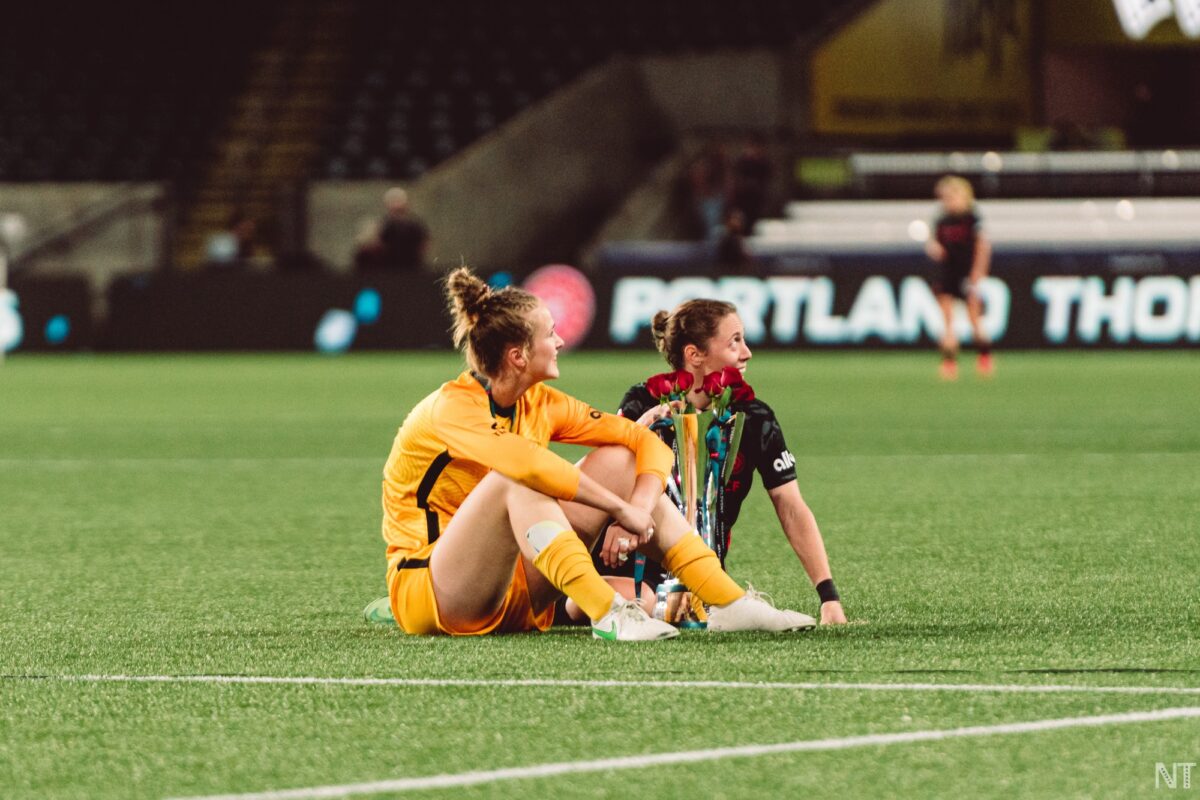Before enlightenment: chop wood, carry water. After enlightenment: chop wood, carry water.
In 2015, Meghan Klingenberg was a standout with the US national team. At the World Cup that year, she started every game for a back line that conceded just three goals—including a Julie Ertz own goal—all tournament. She had a moment in the spotlight with a dramatic goal-line save against Sweden to rescue a clean sheet. There was no reason to suspect the 26-year-old would be on the bubble just over a year later.
But that’s exactly what happened. At the beginning of 2018, Kling was dropped for good, with little noise and less ceremony. That’s what happens when you get cut. There’s no party. One day you’re there, the next you’re not.
“It was really hard,” she remembers. “I had a lot of bitterness about it.”
The story of Kling’s break from the national team wasn’t fully told at the time. In 2016, after the Americans’ ill-fated Olympics run, she suffered a back injury, which the USWNT staff identified as a pulled muscle. In fact, it was a more severe injury that required surgery, and the misdiagnosis set her recovery timeline back significantly.
After recovering from surgery, Kling set about getting back to her 2015 form. She made a strong case for herself in the 2017 Thorns season, establishing herself as a key piece in the offense—a role she still plays today. She notched seven assists that season, the third-most in the league after Kristie Mewis and Nahomi Kawasumi; she was the only defender to record more than three. At the end of that season, the Thorns won the championship.
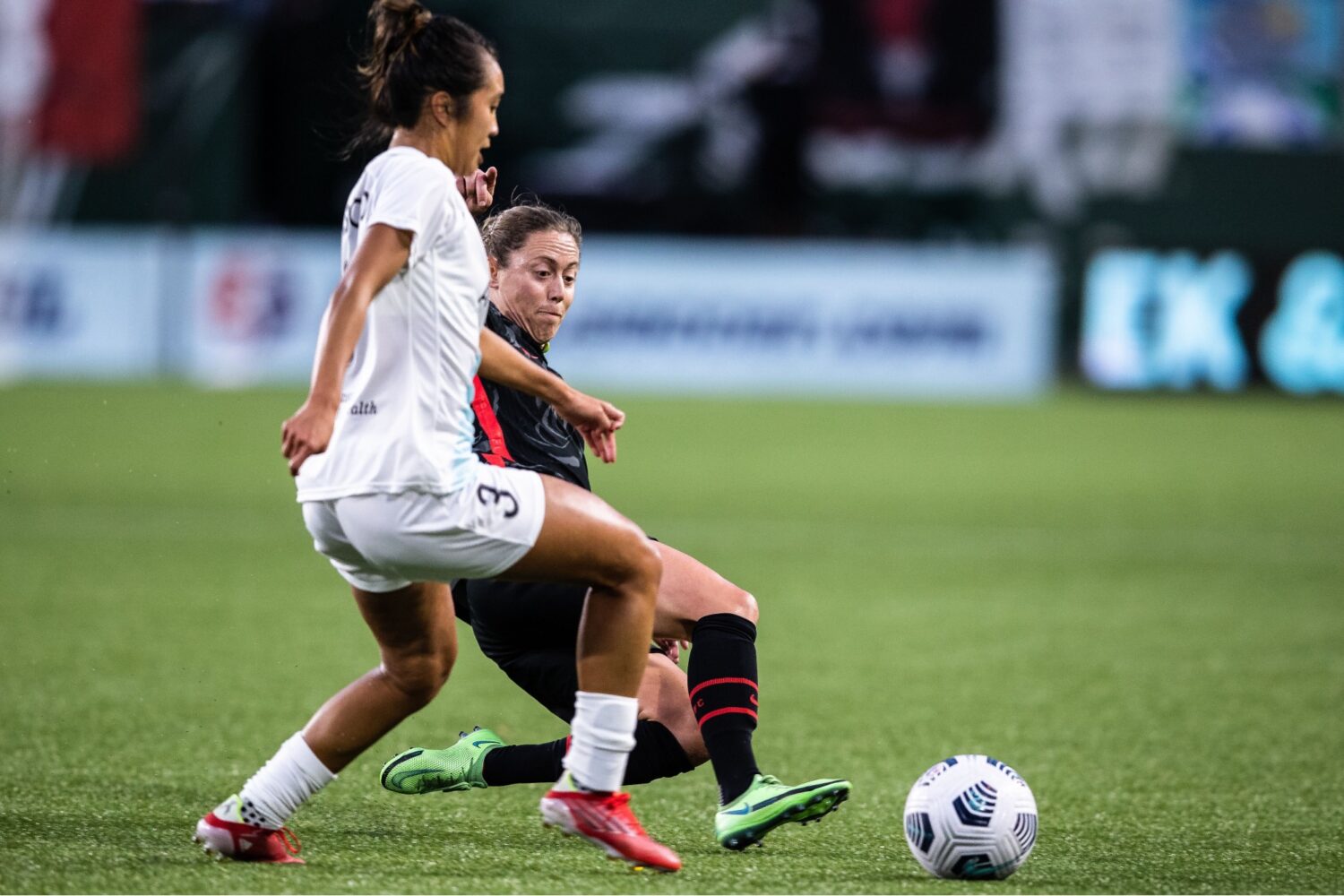
But she never really worked her way back into the national team conversation. From an outsider’s perspective, what’s especially baffling—insulting, frankly—is the lengths the team went to in their search for outside backs leading up to the 2019 World Cup.
Jill Ellis’s staff tried converting Sofia Huerta, a failed experiment that nonetheless prompted Huerta to move from the Red Stars to the Dash; they gave famous homophobe Jaelene Daniels (née Hinkle) a second chance after she’d refused to play in a Pride Month jersey. For their part, the stans—many of them, anyway—wanted Ali Krieger back in the picture and howled for blood every time she was left out of a lineup. We all know how the search ended: with Crystal Dunn, one of the most dangerous attacking players in the world, becoming a locked-in starter at left back.
All that happened because the foregone conclusion, before she’d even had the chance to recover fully, was that Kling’s time was over.
That was a blow. “It felt unfair to not be given a chance with the national team, knowing that I had this injury that they had misdiagnosed for a long time,” she remembers. It’s one thing to get fired because you messed up; it’s another to get punished for someone else’s mistake.
“I could not find joy in the game. I was just playing to get back to where I was.”
Zen master Dongshan Liangjie of Mount Dong said to the assembly, “Experience going beyond Buddha and say a word.”
A monastic asked him, “What is saying a word?”
Dongshan said, “When you say a word, you don’t hear it.”
The monastic said, “Do you hear it?”
Dongshan said, “When I am not speaking, I hear it.”
But that was then. Times have changed.
“I guess the only way that I can put it is that the past doesn’t exist, and the future isn’t real.”
I’m talking to Kling in the stands at Providence Park on a warm day in August. We both have masks on; hers is gray plaid with a Pittsburgh Steelers logo. 2015 was a lifetime ago. Longer—a different plane of existence. The whole Trump administration sits between now and then.
“All we have right now,” she continues, “is this moment right here in front of us. And we get to choose what we want to do with it. If we want to be distracted and not be here, present, we can choose to do that… I think when we choose presence, a lot of other things happen because of that.”
For Kling, this wasn’t an easy lesson to learn. It’s not a mindset that comes easily to professional athletes, for whom performance matters, and hypercompetitiveness is a job requirement. But excellence is paradoxical: the more you fixate on results—on the free kick you whiffed or the bad day you had in training—the less you focus on the process of getting the results. A focus on winning turns into a fear of losing. That fear plagued her, even as she remained a key player for the Thorns through 2018 and 2019.
“I was one of the most outcome-driven athletes that you could find, before I had this kind of paradigm shift,” she says. “And it just wasn’t working for me anymore. I was having all kinds of anxiety, three quarters of a month. I was having trouble physically breathing, because I was having so much anxiety about how I’m going to play, how I’m going to do, what happened last game, all these different things.”
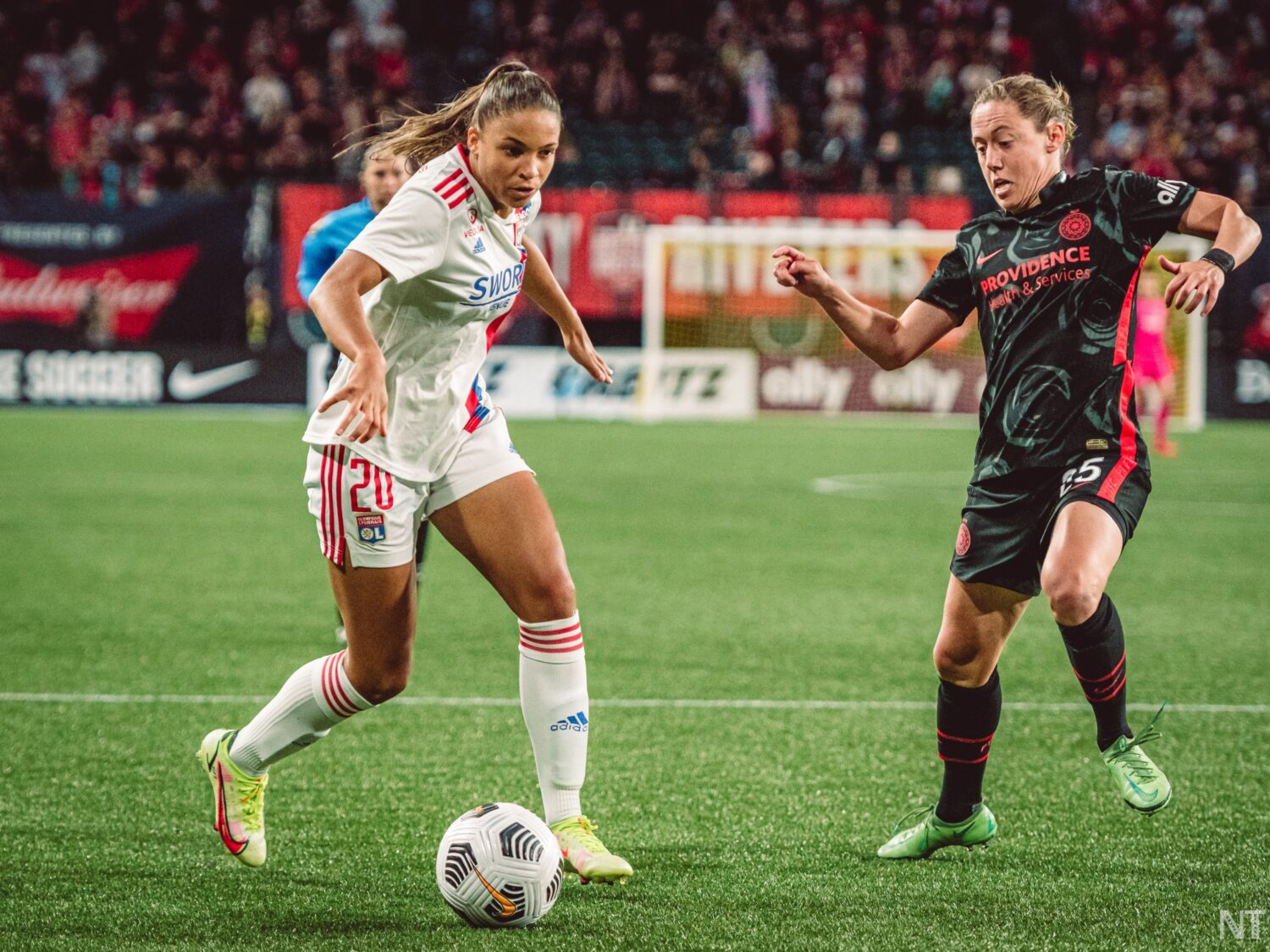
In early 2020, something snapped. “I was just like, so tired,” Kling remembers, “of having anxiety all the time, worrying about the next game. My body would get tight when I’d play, then I’d relax for a few days, and then it would build, build, build. It was like, 10 years of that.”
Through a friend, she got in touch with a performance coach named Jason Goldsmith, whose core philosophy is to teach athletes to focus on the things they can control and let go of the things they can’t. “[Whether] you win or lose, or if you play well, or statistically do well, all of those things, you know, are not something that’s controllable,” Goldsmith says.
Even the best players in the world miss tackles and hoof shots over the bar. As a defender, sometimes you can save the day, and other times you have to go one-on-one against Lynn Williams. “What is controllable,” Goldsmith says, “is, how do you feel when you are playing?”
One tool he uses with athletes is a biofeedback device called a FocusBand, a wearable EEG that connects to a smart phone and allows the user to directly monitor their brain activity. “The benefit of having something like that,” he explains, “that gives you direct feedback, [is that it] allows you to explore different meditation practices in a way that you can see, ‘oh, when I do this, when I focus on this, this is how it’s affecting my brainwave frequency. Or if I do this, this really doesn’t work.’”
In Taoism and Zen Buddhism, one goal of meditation is to enter a state of mushin, or “no-mindedness.” It’s a state of complete engagement in an activity—whether that activity is meditating or kicking a soccer ball—without thought or judgment.
“If you had the device on and you were thinking about how to play,” Goldsmith explains, “you’re no longer playing.”
That state of mind, sometimes called “flow,” is an indispensable tool for athletes, or anyone doing a high-skill task that requires intense concentration. It also has a neural fingerprint that the FocusBand can pick up on. For Kling, Goldsmith sewed the device into a hat, so she could wear it throughout the day. Using the band as part of a daily mindfulness practice, she transformed her outlook.
“Sometimes we go to the grocery store, right,” she explains, “and we’re standing in lines waiting. But what are we waiting for? We’re waiting for the future.” The future, though—as we’ve already discussed—doesn’t exist. At some point, Kling realized, “I don’t need to wait. I can just be.”
That shift helped her reconceptualize the game of soccer. “When I first got [to Portland], it was all about outcomes. How do I make 100% passing, how do I create the most chances? How do I stop the most one-v-ones, all these different things. And I would just data myself to death.”
By shifting her focus away from outcomes, Kling says, “everything slowed down.” Instead of thinking about completing passes or chances, or winning the ball back in specific moments, “I just think about it in terms of space. How do I get my body and this ball into this area? Instead of seeing defenders running at me, or where my players are running, I more see everything at once.”
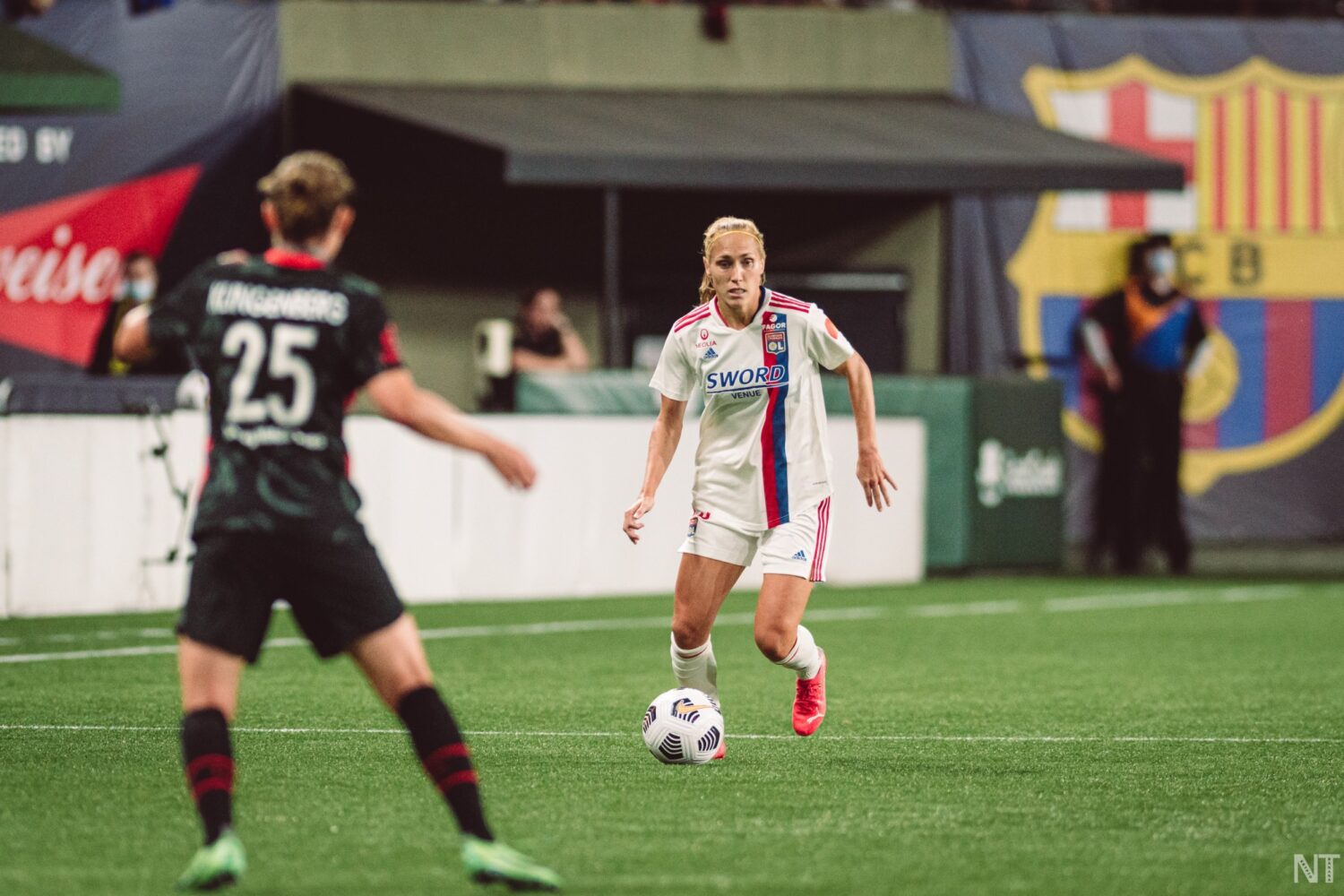
The excellence paradox works in reverse, too. Not worrying about the numbers has enabled Kling to improve her numbers. So far this season, she has a 78.5% pass completion rate, about 5% more than she had in 2019, a 43.9% long pass completion rate—a 10% improvement—and is attempting about 57 passes per game, compared to 43 in 2019.
“For [Dōgen], each moment of practice encompasses enlightenment, and each moment of enlightenment encompasses practice. In other words, practice and enlightenment—process and goal—are inseparable. The circle of practice is complete even at the beginning. This circle of practice-enlightenment is renewed moment after moment.”
–Kazuaki Tanahashi, Enlightenment Unfolds
Kling’s journey over the last three years parallels that of the Thorns as a team. “[In] ‘16 and ‘17, we were very, very focused on the process,” Mark Parsons says. What he means by “process” is a relentless focus on getting better as a group, according to an abstract vision of the kind of team they want to be, rather than numbers of wins and losses. Train well, work hard, strive for improvement, and the results will follow, the reasoning goes. “‘18, ‘19, I think we got—I got—distracted with the outcome,” he says.
It sounds a little absurd to say there was something wrong with a team’s approach in two seasons when they went to the league championship and the playoff semifinal, respectively, but within the team, something had soured. The Thorns want and expect to be the best, and with their resources, there’s little excuse not to be.
From the outside, nothing seemed particularly amiss during that time. You had to know what to look for: a player reporting late for uncertain reasons, a vague disjointedness and a whiff of frustration in the attack. The team’s culture issues came to a head at the 2019 semifinal at Chicago, when Caitlin Foord, Midge Purce, and Hayley Raso started on the bench. After the 1–0 loss, AD Franch alluded to internal fracture, saying the team needed to “regroup, find our culture, and get back to who we are.”
Some of that was a personnel issue; too many players, regardless of quality, weren’t bought into Parsons’s vision for the team. The club cleaned house over the offseason and brought in the likes of Rocky Rodríguez, Sophia Smith, and Morgan Weaver. At least as important was that the coaching staff took a long look in the mirror and realized they’d strayed from their core values.
Effort is the first of those values. But that’s hardly unique, either when looking to Parsons teams of past years—if I had a nickel for every time I’d recorded him talking about “maximum effort,” I’d have, well, quite a few nickels—or when you think about the whole edifice of team sports, especially in this country.
What’s new for this version of the Thorns is the striking literalness with which they apply their stated values. You don’t have to speak with anyone on the team to know this; you can see it on the field. They want to improve at one specific style of play, so they use the same basic game plan every week, regardless of personnel.
Most teams, including the Portland of two or three years ago, line up different ways in different situations, moving to a back three or employing a different pressing scheme to fill in the gaps when certain players weren’t available. Now there is one plan, with clearly defined roles at every position, which every player on the roster knows like the back of their hand.
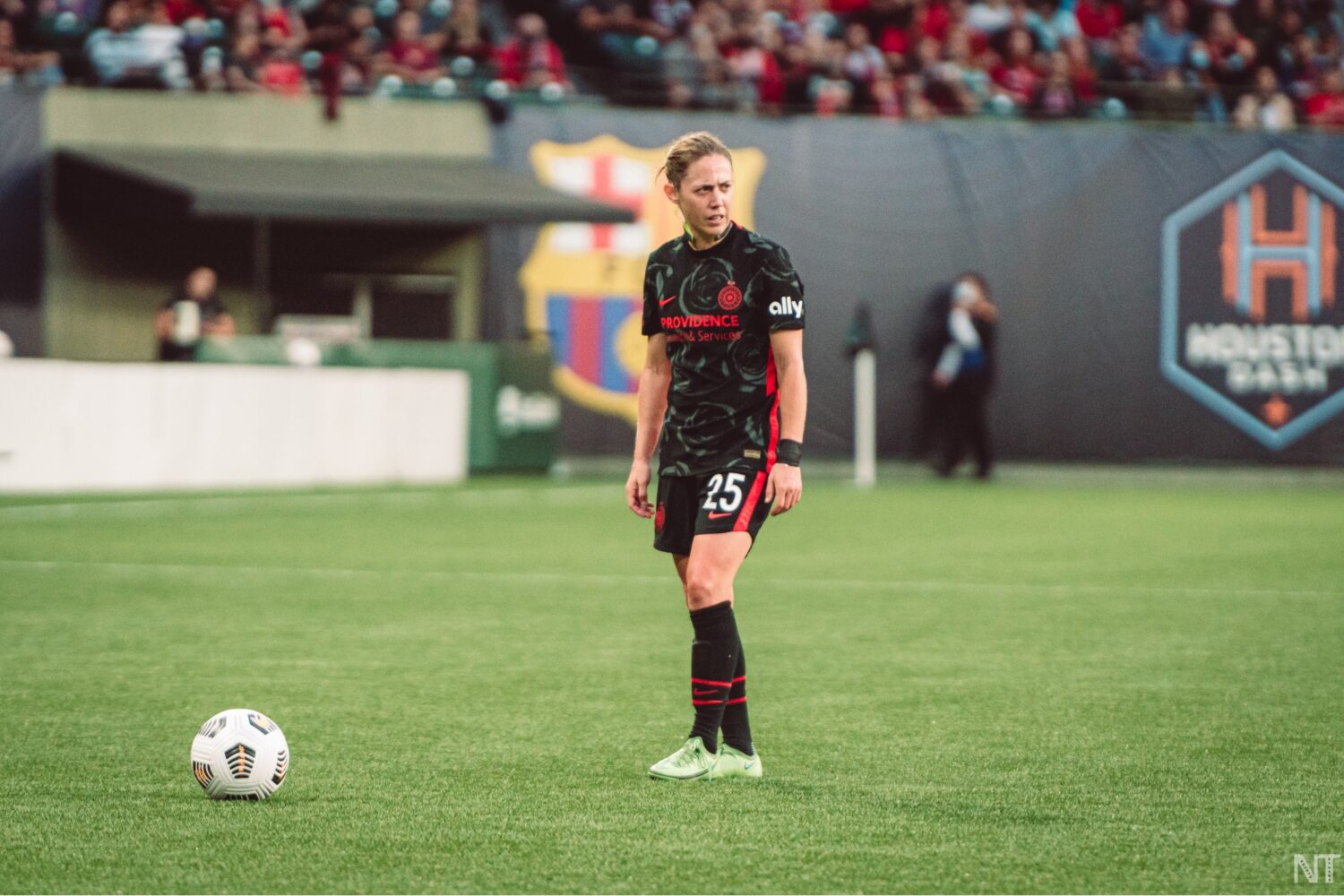
The goal is to win. But they see winning as a long-term goal, not an immediate one. Winning this week is one thing. They want to win the league.
“If we live the rollercoaster of winning and losing and tying with the ball going in or the ball not going in,” Parsons says, “we’re just a team that defines ourselves by outcome. But medium- and long-term success isn’t decided by outcome. It’s about improvement.” Control the controllables, and the rest will fall into place.
Parsons and Kling both use the 2020 Challenge Cup as an illustration.
“We went into the COVID Cup in 2020 and came in last in the preliminary stages,” Kling says. “But that’s because we were so beholden to our mission, we were so beholden to the process, that we were not going to change what we were going to do just to get results. I know that really bothered a lot of people, but it didn’t bother us.”
“We all knew we were on a different journey,” Parsons says.
When Buddha was in Grdhrakuta mountain he turned a flower in his fingers and held it before his listeners. Every one was silent. Only Maha-Kashapa smiled at this revelation, although he tried to control the lines of his face.
Buddha said: “I have the eye of the true teaching, the heart of Nirvana, the true aspect of non-form, and the ineffable stride of Dharma. It is not expressed by words, but especially transmitted beyond teaching. This teaching I have given to Maha-Kashapa.
“I had to realize that life wasn’t fair,” Kling says.
Unfairness—along with pain, loss, and regret—are inevitable. What we can change is how we react. In Buddhism, the cause of suffering is not what happens to us, but the way we push back internally against it. You can be bitter forever, or you can learn to let go.
The idea of getting back to where she was—back to her 2015 form, back to the national team—took some time for Kling to let go of. “But,” she says now, “there’s no getting back to where I was, and why would I want to anyway? Why would I want to go back in the past when I could take all of that information and use it now, and be a totally different player, be a player that I want to be?”
Arguably, she’s better now than she was then. She’s having the club season of her career. More important, she’s found joy in the game again. As she said in a press conference during the 2021 Challenge Cup, “I’m literally having a fucking blast right now.”
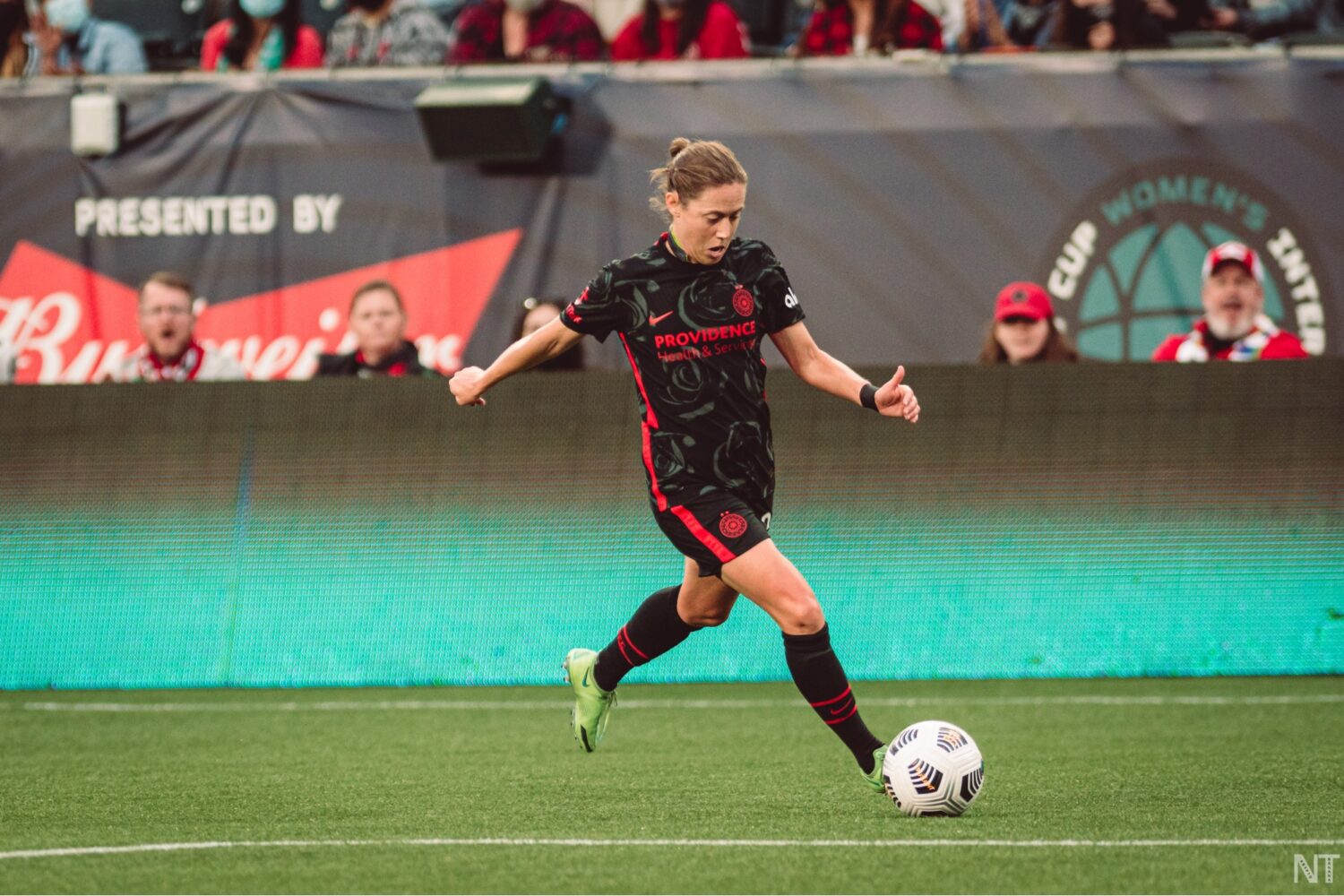
“I’ll tell [friends and family] stories that happened in practice,” she says, “and they’re like, ‘do you ever practice? All I hear about is you laughing, all I hear about is you telling these crazy-ass stories!’ And I’m like, ‘yeah, well, we do that the entire practice. All I do is laugh and play hard, the whole practice.’ I love that, because to me, joy is one of the main drivers of me getting better. When I’m laughing and having fun with my friends, I know that I’m fully tuned in to exactly what we’re doing.”
She sees the pressure, the anxiety, the feelings of inadequacy she long struggled with in other elite athletes. It’s getting more common for athletes, many of them women—Naomi Osaka, Simone Biles, Christen Press—to pull out of competitions for mental and emotional injuries in addition to physical ones.
Those injuries are complex and often rooted in off-field trauma, but to the extent that competition itself exacerbates them, Kling says, “I personally feel like we’ve let these women down. We never taught them that competition should be joyful. We never taught them to be just content with exactly who [they] are.”
“All I want for them is to be able to step up onto the biggest stage of their lives, knowing that they have done everything that they can possibly do to get to that moment, and enjoy it.”

